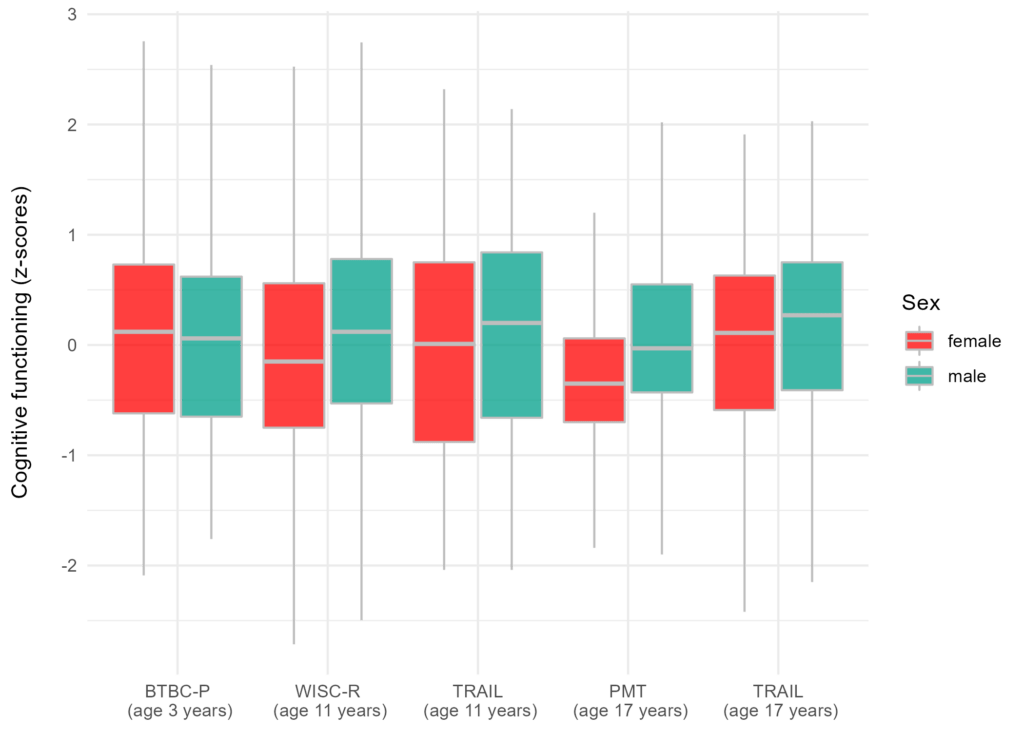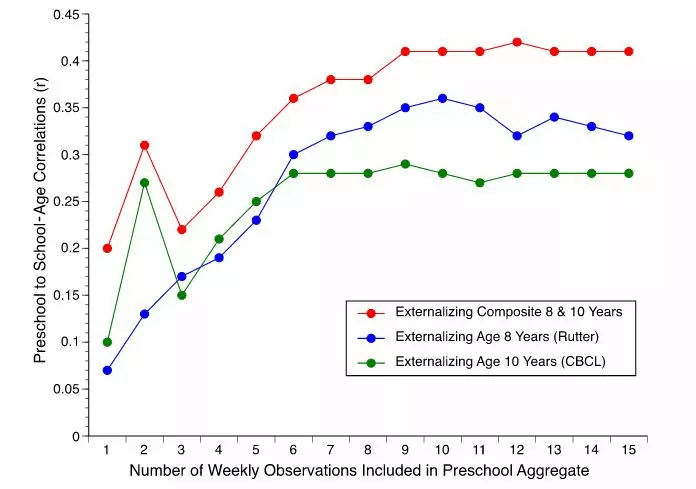In cooperation with Peter Venables from the University of York, data of the Mauritus Child Health Project (cf. Raine, Liu, Venables, Mednick, & Dalais, 2010) is used to examine the influence of early childhood factors on personality development.
As part of this cooperation, the prognostic significance of early childhood behaviour regarding antisocial problems in school age (Zentner, Smolkina, & Venables, 2014) was examined. Also, we analysed the stability of cognitive functions from early childhood to adolescence as well as environmental influences in early childhood on the development of executive functions in adolescence (Strauss, Venables, & Zentner, 2023).
Associations between early childhood poverty and cognitive functioning throughout childhood and adolescence: A 14-year prospective longitudinal analysis of the Mauritius Child Health Project
(Strauss, Venables, & Zentner, 2023)
We found that chronic malnutrition and parental characteristics showed similar-sized, independent associations with initial cognitive functioning at age 3 as well as at age 11 years. For age 17 years, however, associations with early childhood risk factors vanished and instead, cognitive functioning was predicted by performance on prior cognitive assessments. Sex was also found to be a powerful predictor of cognitive trajectories, with boys improving and girls worsening over time, regardless of the level of their initial exposure to risk. The current findings indicate that, to prevent cognitive impairment, interventions tackling poverty and malnutrition should focus on the infancy period and be designed in a gender-sensitive way.
Early Childhood Behaviour & Antisocial Problems at School Age
(Zentner, Smolkina, & Venables, 2014)
Using data from the Mauritius Child Health Project, we particularized the attenuating effects of single-occasion behavioural assessments on consistency estimates of impulsive–aggressive behaviour over time. Specifically, two nursery teachers provided 15 consecutive weekly ratings of the aggressive behaviour of 99 four-year-old children. The same children were reassessed for the presence of externalizing behaviour problems at the ages of 8 and 10. There were substantial increases in both reliability and predictive correlation coefficient magnitudes when the preschool scores were aggregated across several weekly ratings. A further increase resulted after the two outcome assessments were combined into a composite score of school-age externalizing symptoms. A generalized procedure, developed from the correction for attenuation formula, is introduced to describe the relation of aggregation to predictive validity in longitudinal research.



